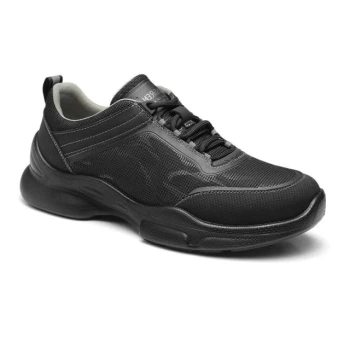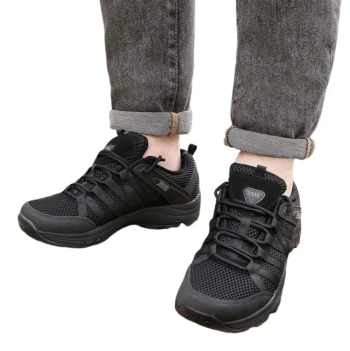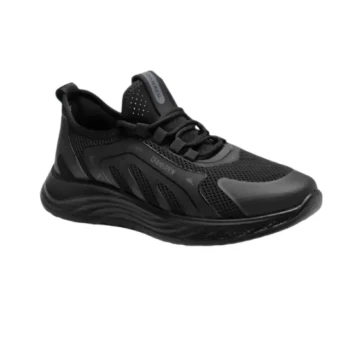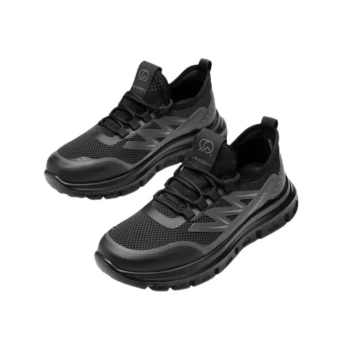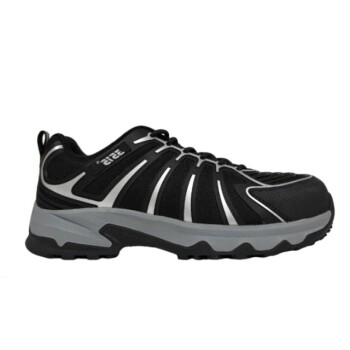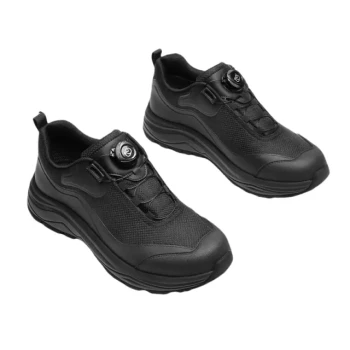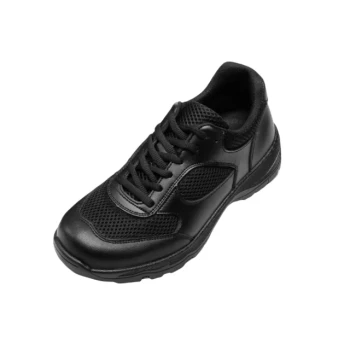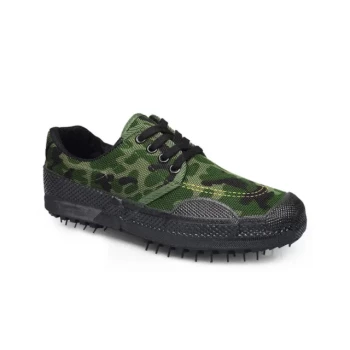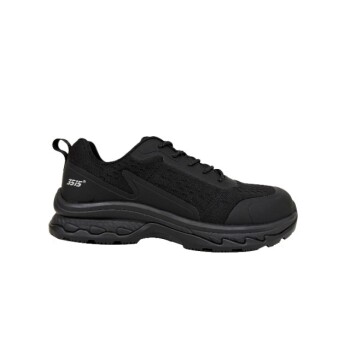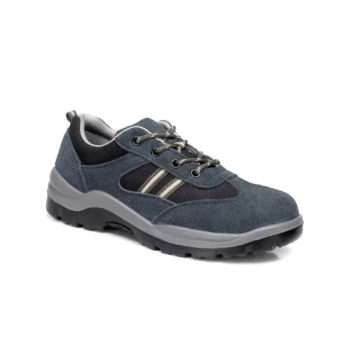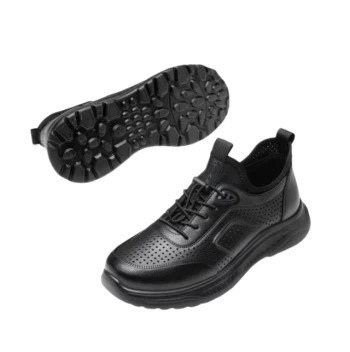At their core, lightweight walking shoes prioritize immediate comfort, flexibility, and reduced fatigue over the robust support and long-term durability found in heavier, more structured footwear. This makes them an excellent choice for many situations, but a potential liability in others, depending entirely on the activity and the individual.
The decision to choose lightweight walking shoes is not about finding a single "best" option, but about understanding a fundamental trade-off: you are exchanging structural support and durability for greater flexibility and lower energy expenditure with every step.
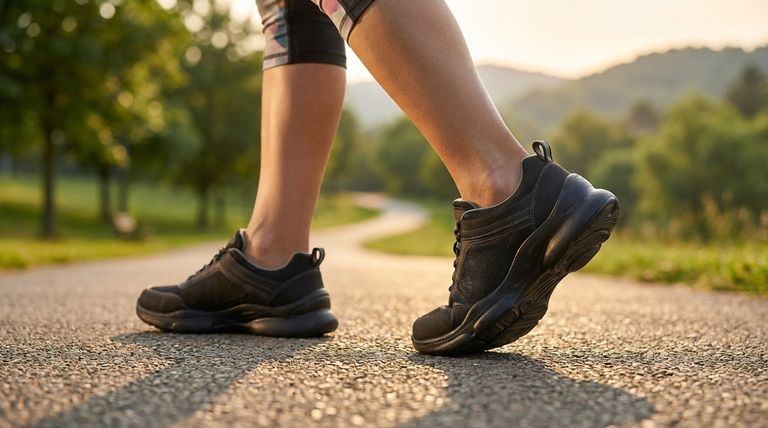
The Primary Advantages of Going Lightweight
Choosing a lightweight shoe offers several immediate and noticeable benefits that appeal to a wide range of users, from casual walkers to frequent travelers.
Reduced Fatigue and Energy Expenditure
Every ounce on your feet requires more energy to lift over thousands of steps. A lighter shoe directly translates to less work for your legs, reducing overall fatigue during a walk and allowing you to go farther with greater ease.
Enhanced Comfort and Flexibility
Lightweight shoes often use softer, more pliable materials that conform to your foot's natural movement. This flexibility reduces the risk of blisters and irritation, providing a "barefoot-like" feel that many find exceptionally comfortable for everyday wear.
Improved Breathability
With less material and often more mesh in their construction, lightweight shoes typically offer superior airflow. This helps keep your feet cooler and drier, which is critical for preventing the moisture buildup that can lead to discomfort and foot health issues.
Practicality for Daily Use and Travel
The sleek, less-obtrusive design of many lightweight shoes makes them versatile for various casual settings. Their packability and ease of slipping them on and off also make them a superior choice for travel.
Understanding the Trade-offs and Limitations
The benefits of a lightweight design come with inherent compromises. Understanding these limitations is crucial to avoid injury and disappointment.
Sacrificed Durability
The materials that make a shoe light—thinner soles, less dense foams, and lighter upper fabrics—are inherently less durable. For heavy, long-term use, especially on abrasive surfaces, a lightweight shoe will wear out significantly faster than a more robust counterpart.
Reduced Structural Support
This is the most critical trade-off. Lightweight shoes offer minimal resistance to twisting forces and provide less ankle support. While this is fine for those with strong ankles on stable ground, it can be a significant risk on uneven terrain or for individuals who require more stability.
Less Cushioning and Impact Protection
While comfortable, lightweight shoes often have less cushioning in the midsole. Over long distances on hard surfaces like pavement, this can lead to increased impact on your joints and greater foot fatigue compared to a shoe with a more substantial cushioning system.
Making the Right Choice for Your Goal
To select the appropriate shoe, you must match its characteristics to your intended activity and personal biomechanics.
- If your primary focus is daily comfort and casual walks: A lightweight shoe is an excellent choice, offering maximum comfort and minimizing fatigue for everyday errands and short strolls.
- If your primary focus is travel: The packability, versatility, and ease of use make lightweight shoes the clear winner for most travel scenarios.
- If your primary focus is long-distance or rugged terrain: You must prioritize durability and structural support, which almost always means choosing a heavier, more structured shoe or hiking boot.
- If you have specific support needs (like overpronation): A standard lightweight shoe may lack the necessary stability, and you should look for models with specific support features or plan to use them with corrective orthotics.
By correctly matching the shoe's design to your specific needs, you ensure lasting comfort and performance without compromise.
Summary Table:
| Advantage | Limitation |
|---|---|
| Reduced Fatigue & Energy Use | Sacrificed Durability |
| Enhanced Comfort & Flexibility | Reduced Structural Support |
| Improved Breathability | Less Cushioning & Impact Protection |
| Excellent for Travel & Daily Use | Not Ideal for Rugged Terrain |
Find the Perfect Walking Shoe for Your Business
As a large-scale manufacturer, 3515 produces a comprehensive range of footwear for distributors, brand owners, and bulk clients. Whether your customers need the everyday comfort of lightweight shoes or the rugged durability of hiking boots, our production capabilities encompass all types of footwear.
Partner with us to:
- Source a diverse portfolio of high-quality walking shoes.
- Benefit from reliable, large-volume manufacturing to meet your demand.
- Develop custom footwear solutions tailored to your brand and market.
Contact 3515 today to discuss your footwear needs and elevate your product line.
Visual Guide
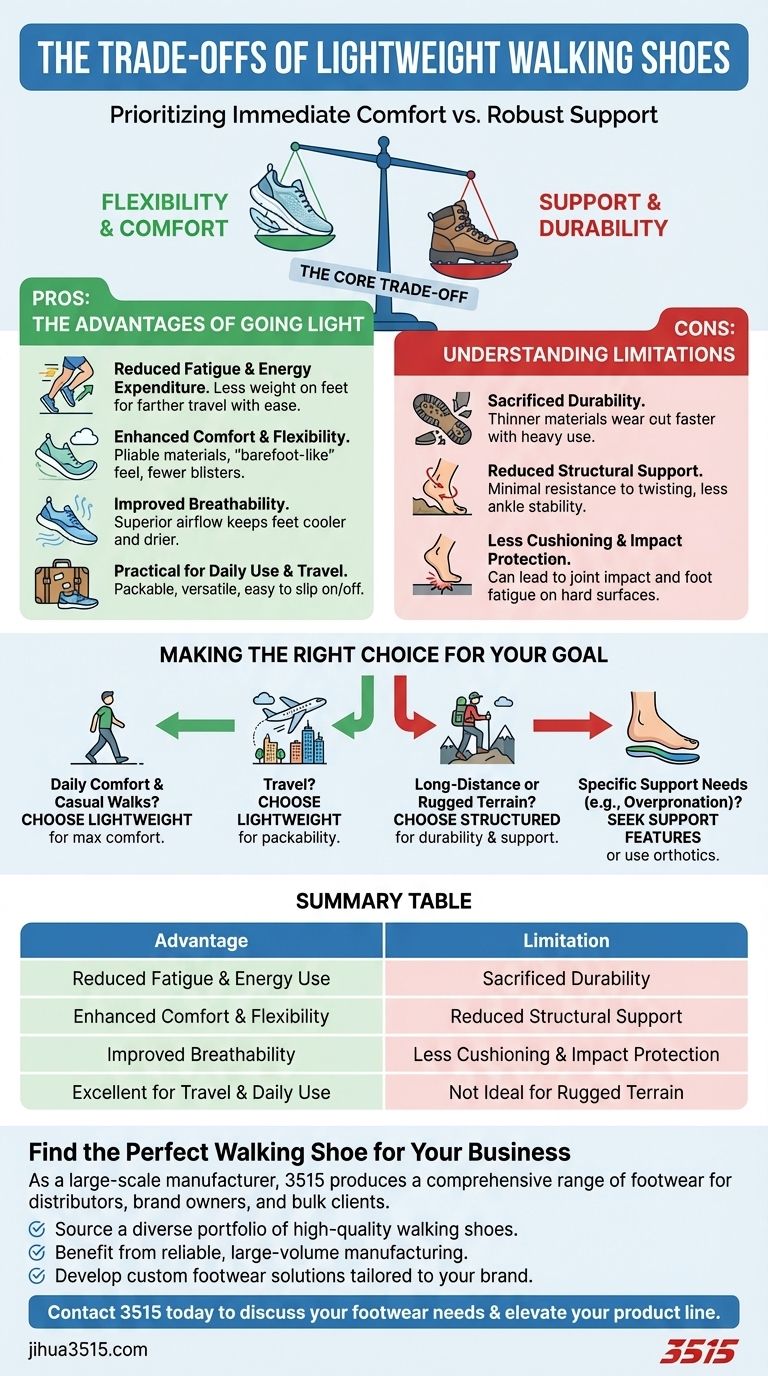
Related Products
- Wholesale Breathable Training Shoes Custom Athletic Footwear Manufacturer
- Lightweight Breathable Training Shoes for Wholesale & Custom OEM Manufacturing
- Wholesale Breathable & Cushioned Training Shoes Custom Factory Production
- Wholesale Lightweight Cushioned Athletic Sneakers for Custom Bulk Production
- Premium KPU Athletic Safety Shoes for Wholesale
People Also Ask
- What are the advantages of walking shoes designed for fitness walking? Discover Superior Comfort & Injury Prevention
- What are the requirements for standardized walking shoes in gait analysis? Ensure Data Integrity and Accuracy
- What are the characteristics of winter boot soles? Engineered for Ultimate Cold Weather Traction
- How can keeping your feet and knees straight help while wearing a walking boot? Prevent Hip and Back Pain
- What are harness boots and how do they differ from engineer boots? Find Your Perfect Biker Boot
- What materials are best for breathable walking shoes? Find Your Perfect Fit for All-Day Comfort
- How does a structural assessment tool evaluate footwear for urban walking? Optimize Your Urban Shoe Performance
- What should riders prioritize when purchasing equestrian boots? A Guide to Fit, Function & Materials
